#moundsville
Text

Best birthday ever! Ghost hunt at the moundsville penitentiary with my girlfriend and best friends!
57 notes
·
View notes
Text
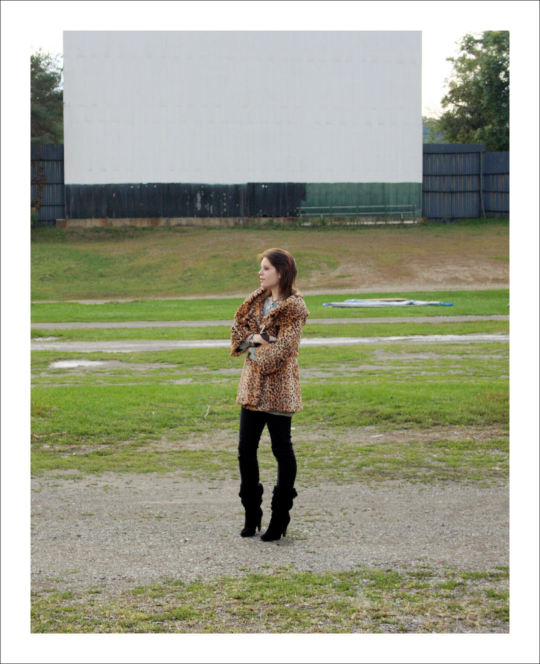
West Virginia.
3 notes
·
View notes
Text

"The prisoners were permitted to smoke pipes, but were not supposed to keep matches. In order to enable them to light up, a guard made the rounds with a lighted torch each evening after the inmates were locked in their cells. The prisoners desiring a light were supposed to have a piece of paper rolled up into a taper, and placed on the cell rail, ready to be lighted quickly by the torch. One lighting was all they got.
Some of the prisoners often improvised their own lighting system by passing a cotton string, burning at one end, from cell to cell. This nimble fagot sometimes made the rounds until the retirement call was sounded.
Some of the prisoners succeeded in lighting their pipes by the use of pieces of flint and steel, which they kept hidden in their bunks or on their person.
Pranks and games of various kinds were often played surreptitiously by the inmates. In order to detect the approach of the guards walking noiselessly, with their shoes equipped with rubber soles and heels, they kept themselves supplied with small mirrors. Set at proper angles, the guard could be seen a cell-block away. Safeguarded in this manner they often indulged in games of dominoes and checkers. When the players were confined in adjoining cells, they executed the moves of the game by means of broomsticks, the pieces being shoved about on the floor on the outside of the cells.
A certain prisoner born in a foreign country was working in the prison bakery, where pies were being baked, supposedly for the guards, but which could be bought by prisoners at fancy prices, if done on the quiet. The foreigner, not well versed in American ways, and preferring to take a hint rather than the consequences, became the dupe of a scheming patient, lounging outside of the hospital. With black ink he printed on a piece of paper a demand that a pie be left on the bakery steps at a certain hour, or else his graft would be exposed. For signature the message bore the ominous sketch of a large black hand. The ruse worked perfectly, and, at the designated hour, the pie was ready and waiting on the bakery steps.
There were not very many lawyers in prison, not as many, in proportion, as from most of the other professions; but there was one barrister in the penitentiary who claimed that he was there on account of his political ambitions, and the duplicity of a fellow member of the bar.
He said that he had announced his candidacy for the office of prosecuting attorney of his county; then, he explained, the lawyer who was already holding the office, and who was a candidate for re-election, trumped up a charge against him, landed him in prison, and succeeded in having himself re-elected.
“When these prosecutors get after you,” he said, “they are like a pack of hounds. When one yelps, ‘Here’s the hot trail,’ they all fall in, and your hide is bound for the tan yard.” He may have been too severe on his fellow barristers; but he added, “If you make a mistake, you go to prison. If your attorney makes a mistake, you go to prison. If the judge or the jury makes a mistake, you go to prison—so there you are.”
“Well,” questioned an unsympathetic prisoner, “you wanted to be a prosecutor and devote your life to sending other people to jail, didn’t you?”
“Yes, I did then, but never again,” replied the lawyer.
It all depends on the point of view. There would hardly be room in the prisons for all the [political] candidates these days.
A nutty prisoner, with a propensity for playing pranks, on one occasion caused a good deal of merriment to a lot of prisoners at the expense of a green guard. This inmate, known as “Steed,” had succeeded in convincing the officials that he was mentally unbalanced. Being considered harmless, he was assigned the task of carrying messages and orders from the office to others within the grounds. This work gave him the opportunity of helping to initiate the newly appointed and inexperienced guards.
Having delivered a number of messages to the new guard, and having observed that the instructions were being carried out without question, the nit-wit proceeded to give orders of his own. He secured a long pole, to one end of which he tied a bunch of cloth, and delivered it to the guard with the statement that the warden wanted him to dust off the wire screens in the second story windows of the prison buildings.
The unsuspecting guard worked industriously for more than an hour at this bogus task, while the wag was concealing his glee with great difficulty, and much to the amusement of the many prisoners, who were always keen to laugh at the victim of a practical joke, especially if the victim was a guard.
Having been tipped off by another guard, and realizing that he was the butt of one of Steed’s jokes, he broke the pole into pieces and gave the prison jester a merry chase as he hurled the remnants of the broken pole at his empty head.
Even jokes at the expense of the warden were highly relished. The story went the rounds that one day a reform worker, while visiting the prison, was perturbed by the downcast attitude of one of the men she found.
“My poor man,” she said to him, “‘what is the length of your term?”
“Depends on politics, lady,” replied the melancholy one, “I am the warden.”
The ancient practice of using articles of merchandise instead of money as the medium of exchange was quite common in this state prison. The rule forbidding the inmates to have money made the practice necessary.
The men were permitted, at times, to buy cans of tobacco and other articles, to be paid for with funds to their credit at the prison office. A number of them made it a practice to keep on hand a number of these cans of tobacco, and then when they desired to purchase something possessed by some other prisoner, the value was fixed at so many cans of tobacco instead of a price expressed in dollars and cents. In this manner, when the purchase was made, the cans of tobacco were paid out and passed current the same as if they had been coins of the realm. Necessity in this case, as in many others, became the mother of invention.
Christmas is the one great day of the year in the penitentiary. Then, if ever, the convicts are treated with some degree of respect and decency. The Christlike spirit penetrates even the lonely prison walls on this universal festal occasion. On that day at least one good meal is served.
For months in advance, the prisoners looked forward to the coming of Christmas, and talked about it for months afterwards. Some leniency was practiced then in the receipt of boxes and presents from the outside, and it was surprising and gratifying to observe the generosity with which those fortunate enough to receive boxes, shared their contents with those not so favored.
If one observed the dining room in August or September he need not be surprised to see the decorations placed there the previous Christmas, and would understand that nothing worth while had taken place since. The monotonous life of the men entombed in dismal prisons is brightened by this brief gleam of Christmas cheer, and helps to lighten the burdens during the whole dreary year.
Penal servitude, with all its blighting effects, does not seem to dampen the spirit of patriotism in the breasts of prisoners. When America entered the World War, the men in the penitentiary lost no time in offering their services in any capacity in which their country might wish to use them. Those who had means at their command were liberal buyers of Liberty Bonds. In times gone by, men convicted of crime were given the privilege of serving as soldiers, and gave a good account of themselves.
...
Should you ever be sentenced to the penitentiary be wise enough to choose first to be a writer, an editor, or a reporter. They seemed to get all the breaks when the really desirable jobs were handed out.
The reason for this preferment remains unexplained, but, should any of them care to write, either then or later, there is at hand an abundance of live material scintillating with the motives and mockeries, the miseries and tragedies of life as in no other place.
This prison, like most others, had a printing shop, and many an undiscovered Milton lived to see his masterpieces find their way into the prison paper. A volume might be written about prison poetry, or filled with so-called poetry written by men behind prison bars; some of which was not so bad, much of it was humorous, very little of it was pessimistic, or tinted with the “prison blues.”
- Earl Ellicott Dudding, The Trail of the Dead Years. Edited by William Winfred Smith. Huntington, West Virginia: Prisoners Relief Society, 1932. p. 86-91
#life inside#west virginia penitentiary#moundsville#sentenced to the penitentiary#west virginia#american prison system#prisoner autobiography#history of crime and punishment#research quote#prison conditions#trail of the dead years#reading 2024
3 notes
·
View notes
Text

Sri Sri Radha Vrindaban Chandra at ISKCON New Vrindaban Moundsville, West Virginia, US.
#radharani#krishna#iskcon#iskcontemple#harekrishna#radhakrishna#hariholiness#newvrindaban#newvrindabanwestvirginia#moundsville#westvirginia#usa#iskconwestvirginia#iskconusa#radhavrindavanchandra#newvrindavan
2 notes
·
View notes
Text
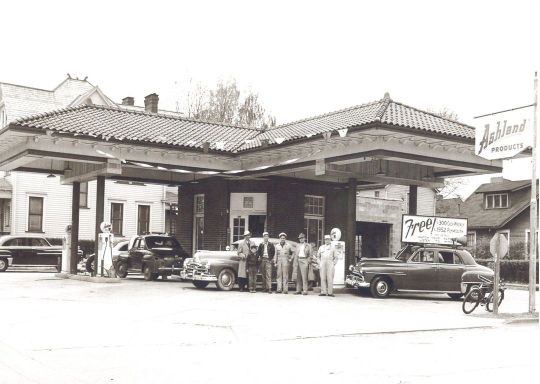
An Ashland Oil service station in Moundsville, West Virginia in 1952!
#vintage#nostalgia#ashland oil#moundsville#west virginia#1952#service station#american history#americana#small town america
1 note
·
View note
Link
#belmontcounty#BrookeCounty#MarshallCounty#Moundsville#NorthGate#ohiocounty#prison#UpperOhioValley#WestVirginiaPenitentiary
0 notes
Text

Spooktober Haunted Places: Moundsville Penitentiary in Moundsville West Virginia #hauntedplaces #MoundsvillePenitentiary #moundsville #WestVirginia #moundsvillewestvirginia
#haunted places#moundsville#Moundsville Penitentiary#west virginia#moundsville west virginia#Spooktober#Halloween#october
0 notes
Text








Allie Colleen – Marshall County Fair – Moundsville, WV – July 29, 2023
Photos by Dave Parsons © 2023
1 note
·
View note
Text
One week from today I'm going to Moundsville, West Virginia to spend two nights in lockdown inside the old WV State Penitentiary!

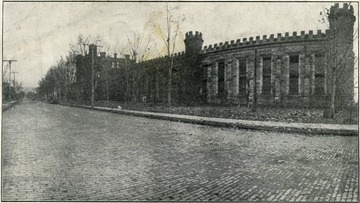
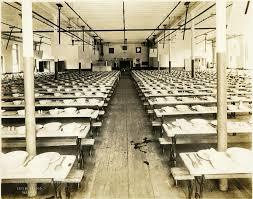
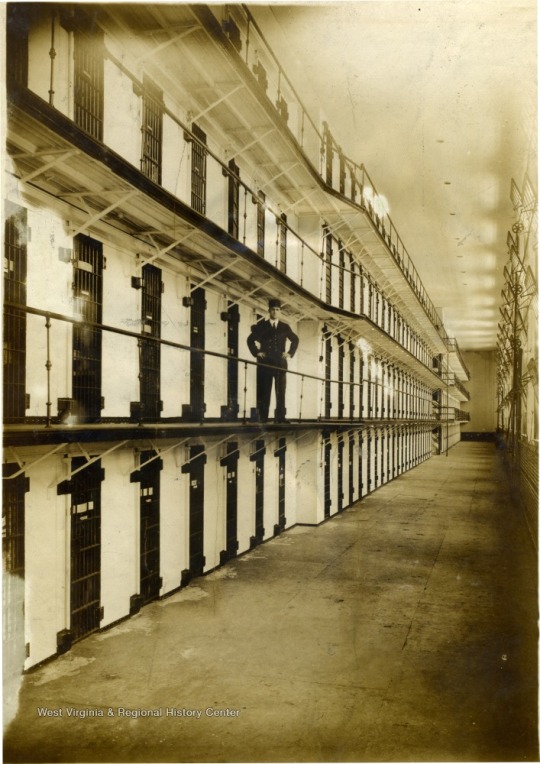
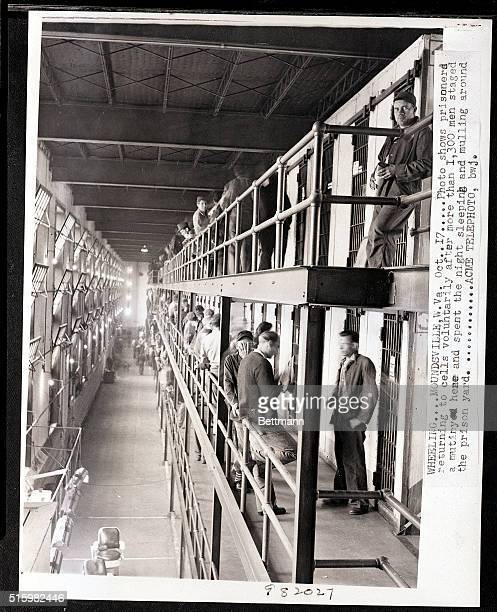


Look at how HUGE it actually is 😮

.


Tag urself I'm 100% Shane 😃
.
#I ain't afraid of no ghost!#Haunted#Ghosts#Paranormal Investigation#Moundsville Penitentiary#West Virginia
369 notes
·
View notes
Text

#artists on tumblr#ai artwork#original#Base from personal photograph#Moundsville WV#sci-fi art#future sunset
5 notes
·
View notes
Note
U associating you missed my heart with toji actually made me set my phone down and stare at my wall for like five minutes like. wow…yeah…
IT'S HEARTBREAKING!
#mercury speaks#ohh toji... oh...#yeah big sexy guy big dick so sexy... wailing rn#toji when he's downriver from the moundsville prison graveyard
6 notes
·
View notes
Text
"Seeing how greatly interested the convicts were in the Christian Herald, I obtained permission from the warden to secure their subscriptions for it. Several hundred prisoners became subscribers and regular readers. In many instances the influence of this religious journal upon the convicts became very noticeable.
Among the subscribers was a full-blooded young Indian, of the Mohawk tribe, and known as “Indian Joe.” He was accused of having killed a man in a riot among the miners in the coal fields. Although he steadfastly maintained his innocence of the crime for which he was sentenced, he took his imprisonment with true Indian stoicism.
In his cell he kept an unique home-made calendar. On a large piece of cardboard he had drawn a great number of circles, with twelve circles in a row. Each circle stood for a moon, or month, and each row represented a year. It was the Indian calendar. As time elapsed, month by month, he marked off a circle. When all the moons on his calendar had waxed and waned, and were marked off, his long sentence would be at an end. It was a joyous ceremony to him each month when he marked off a passing moon, bringing him one step nearer to ultimate freedom.
Indian Joe was greatly pleased and perplexed as he read the Herald—pleased with the ideals of Christian living as it was taught, and perplexed by the many un-Christian acts of life as it was lived.
I was very much interested in the reactions of his alert and practical mind. One day, while talking with him about such matters, he asked me, ‘‘How come Christian folks send missionaries to China, and keep innocent white men and Indians locked up in pen right here home?”
Needless to say I was puzzled about what kind of an answer to give him, but, finally, I explained that Christian people did not know that these prisoners were innocent.
His practical mind flashed back a question immediately. “Then why no tell them?” he asked sincerely."
- Earl Ellicott Dudding, The Trail of the Dead Years. Edited by William Winfred Smith. Huntington, West Virginia: Prisoners Relief Society, 1932. p. 100-101
#life inside#west virginia penitentiary#moundsville#sentenced to the penitentiary#west virginia#american prison system#prisoner autobiography#history of crime and punishment#research quote#prison conditions#trail of the dead years#reading 2024#religion in prison#indigenous people#american indians#wrongfully convicted#christian mission#mohawk
1 note
·
View note
Text
3 notes
·
View notes


